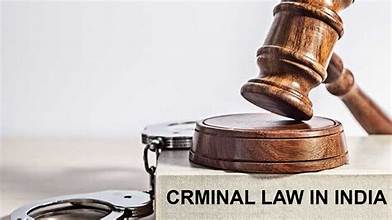


On Admirable 29, 2024, the Preeminent Court of India conveyed a noteworthy judgment tending to issues of legitimate responsibility and the application of criminal law in cases including genuine charges beneath the Indian Corrective Code (IPC). The administering underscores the significance of solid prove and highlights the judiciary's part in guaranteeing equity is served reasonably and fair-mindedly.
Background of the Case
The appealing party was indicted by the Madras Tall Court beneath Segments 376 (Discipline for Assault) and 506(II) (Criminal Terrorizing) of the IPC. The conviction was basically based on the victim's declaration and supporting therapeutic prove. The appealing party challenged this conviction within the Preeminent Court, contending that the prove displayed was deficiently to demonstrate his blame past a sensible question.
The Supreme Court's address
The Court stressed the importance of the victim's testimony in rape cases, stating that it does not always need to be supported by evidence but must be trustworthy and coherent. The court identified discrepancies in the victim's account, lacking sufficient medical proof, leading to uncertainty about the prosecution's argument. The prosecution's position was further weakened by the absence of supporting evidence.
The Verdict
Taking after a exhaustive audit of the prove, the Incomparable Court decided that the arraignment did not adequately build up the charges past a sensible question. The Court focused that on the off chance that there's any sensible vulnerability in a criminal trial, the litigant ought to be vindicated, affirming that the obligation of demonstrating blame rests essentially on the indictment.
Subsequently, the Preeminent Court cleared the appealing party of all charges, toppling the earlier decision. The ruling underscores the importance of having strong, reliable proof to obtain a guilty verdict, especially in situations with serious accusations.
Consequences of the Decision
This decision affirms the Supreme Court's dedication to maintaining justice by ensuring convictions rely on trustworthy and uniform evidence. It acts as a prompt that although protecting victims is important, the accused's rights must also be protected. The administering is anticipated to affect up and coming cases, highlighting the significance of supporting prove in criminal trials and the careful examination of declarations.
Conclusion
The Supreme Court's administering may be a critical minute within the field of criminal law, exhibiting the judiciary's commitment to maintaining a reasonable and impartial approach to equity. The administering highlights the importance of holding people responsible under the law and the significance of sentencing based on undeniable prove, guaranteeing that equity isn't as it were served but too seen as such.
TAGS: Supreme Court acquittal legal accountability criminal appeal Madras High Court IPC Section 376 IPC Section 506(II) burden of proof credible evidence victim testimony criminal law.